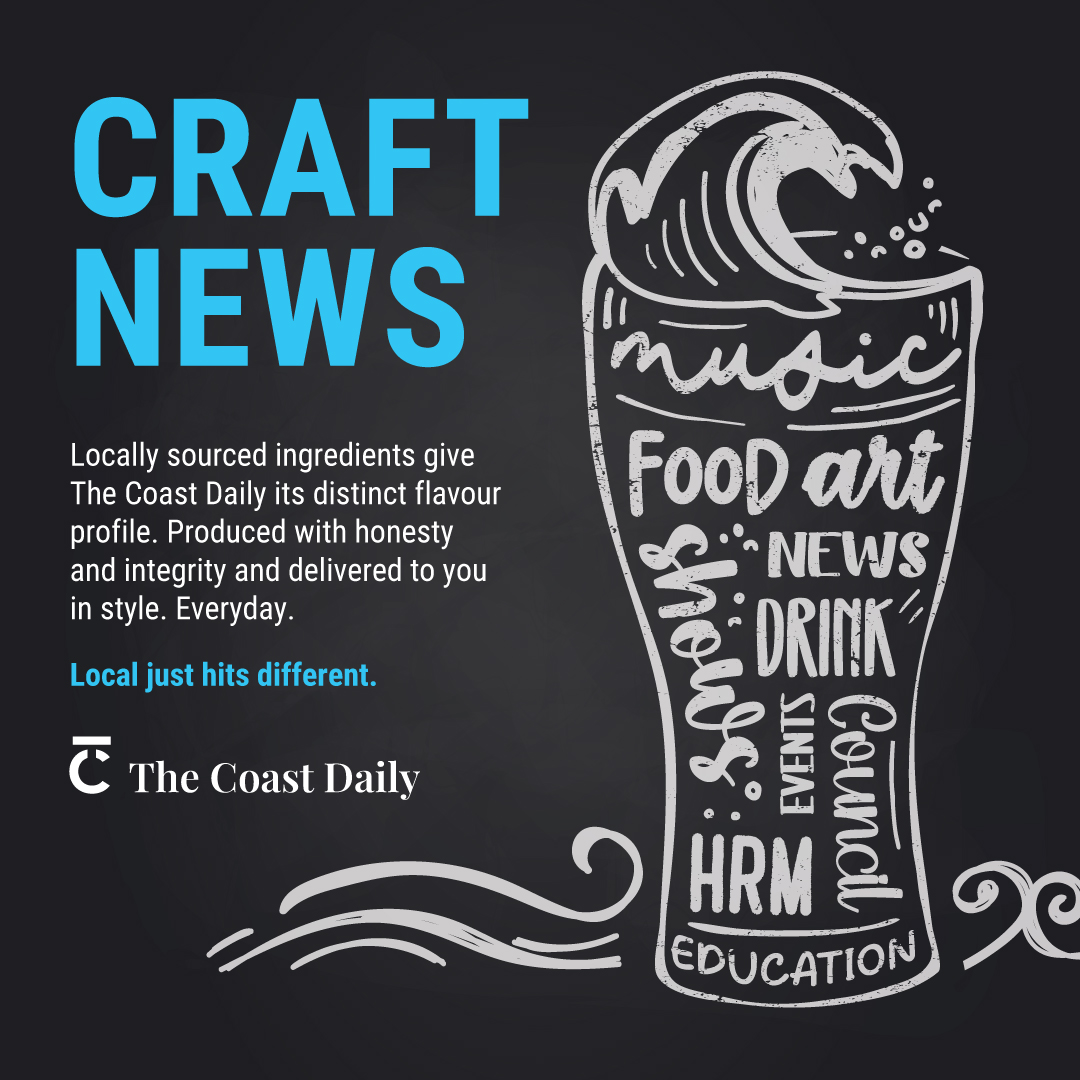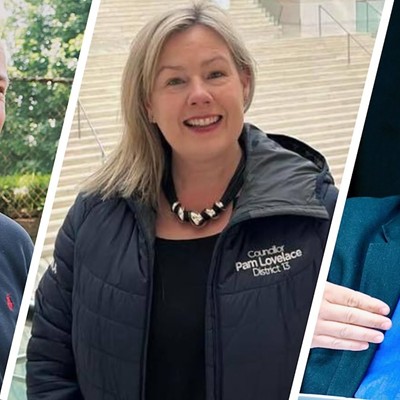The race in Halifax’s District 7, known as Halifax South Downtown, is wide open after long-term incumbent councillor Waye Mason effectively resigned his seat by throwing his name in the hat for mayor. And despite the name, the downtown district has a wide range of residential communities. There are a couple of universities, relatively dense post-war suburban housing, apartment buildings along the Halifax waterfront, Spring Garden Road and the south end mansion district.
This provides a variety of challenges for a District 7 councillor. There are the needs that most of us are familiar with: affordable housing, better transit and transportation, and doing something about homelessness. But there are also the needs of the world’s 1%, which come to light every now and again in some hall of fame community council meetings.
About a year into the pandemic, in Janurary 2021, the Halifax and West Community Council met to hear an appeal. The applicant, John Risley, yes that one, had wanted to do some home renovations, but his permit was denied so he appealed the decision. During that meeting in January 2021 Risley explained that he had two mansions on Emscote Drive. One mansion was for his family to live in, and the other mansion was for fundraising events and teenagers to hang out in. Risley explained that hosting an event requires a formal kitchen, whereas living requires a casual kitchen, and since going outside sucks, he wanted to make his two big houses into one massive house with two kitchens.
Even though this was against the rules, he hoped the community council would understand and be sympathetic to how he got into this position. He’s just a man who wanted two kitchens in one big house, but didn’t want to follow municipal bylaws which say only one kitchen is allowed per house (unless it’s subdivided into separate units). He also wanted to make one big house across two properties without consolidating those two properties into one. Following the rules would have required spending money and going through the permitting process, so instead being confined by regulation like the rest of us plebs, Risley tried to get permission to ignore the city’s rules
Issues like this continue to rear their heads in District 7, with the recent example of the residents of Coburg Road have organizing to leverage their power to try and stop some good governance and responsible infrastructure building because change is scary. This means that any councillor for District 7 will be expected both to help unhoused constituents access emergency housing services, and help overhoused constituents understand what forward-looking city building looks like when it happens in their community.
To determine which candidates are equipped to face the complex challenges like the ones presented by residents of Coburg, residents living in parks and a billionaire neighbour, The Coast sent out a questionnaire to see what each candidate knows about the issues facing the city ahead of the municipal election on Oct. 19. The Coast followed up with more detailed questions to test each candidate's policy chops.
For this district, the order of candidates listed below is random. It was determined by your nerdy reporter putting all the candidates in a list and then rolling dice, in the weakest possible version of rolling for initiative.
Laura White
Up first, the person who rolled a 16 for initiative—and as an engineer she’d likely be this group’s articifer—is Laura White. She had one of the strongest responses to The Coast’s candidate questionnaire in an already pretty strong field. She demonstrated a comprehensive understanding of Halifax’s strategic plans, their intent and how some plans could potentially be tweaked to better fulfill that intent. For example, Halifa’s new Infrastructure Asset Management Administrative Order passed in June of this year. This document is a practice in good governance and risk management. People who reside in the HRM rely on infrastructure, and one of the city’s main jobs behind regulating land use is building and maintaining all that infrastructure. Historically the city of Halifax has chosen to build out infrastructure in an unsustainable way. Anything unsustainable will eventually collapse, and this legislation should stave off the worst of the effects of Halifax’s infrastructure deficit.
But it’s also true that the way Halifax (and most of the world) built out its infrastructure has created unavoidable, if random, outcomes. Right now North Carolina is the loser of this infrastructure lottery, but previous Canadian losers include Lytton, Fort MacMurray, Jasper and Upper Tantallon. White wrote that she thinks the AO could be tweaked to ask “what is the worst that can happen?” That’s not to say the broadly written clause 3(f) of the Administrative Order wouldn’t be used to plan Halifax’s future resilient infrastructure. But she thinks resilience may be worth explicitly identifying due to how climate change’s probability works.
It takes quite a strong policy thinker to deftly ‘Yes, and…’ an Administrative Order about infrastructure in line with the order’s intent.
Laura White’s website can be found here: laurawhite.ca
Cathy Cervin
Up next the person who rolled a 7 for initiative, Cathy Cervin. Based on her background as a family doctor, she’d be a healer like a cleric in this policy party. Cervin had strong answers to The Coast’s questionnaire and demonstrated a good understanding of the municipality’s strategic plans. For example, in her answer about what she’d like to see tweaked in the Housing Accelerator Fund bylaws, she said HRM’s policies that mandate affordable housing, like density bonusing, should update what exactly “affordable” means. She writes that Halifax’s current 30%-less-than-the-market-rate definition of affordable should be changed to “housing that is in good repair, large enough for its occupants and costs less than 30% of the household’s pretax income.”
Regarding police reform, Cervin has some good ideas around community policing. Writing that “policing and police officers should be community-based so officers are attached to a community/neighbourhood, and often work on foot, so citizens know the police, the police know the citizens and trust develops.” This is promising to hear from Cervin for two reasons. The first is because this is the one form of policing that may actually prevent crime. And the second is that in an interview with The Coast to talk about her answers, Cervin explained what barriers currently prevent this (TL;DR a city designed for cars) and how other things like the suburban plan could be used to achieve a goal of community policing.
Cathy Cervin’s website can be found here: cathycervin.ca
Peter Sonnichsen
Up next in the battle for District 7, the guy who rolled a 4, and is probably this party’s wizard. Wizards, for those who are not familiar with Dungeons and Dragons, are powerful spell casters who have to prepare all their spells by reading stacks of books each night. Unlike sorcerers, who come by their magic naturally, wizards have to put in the work. And boy howdy did Peter Sonnichsen put in the work, submitting a 10-page response to our candidate questionnaire in which he demonstrated a strong understanding of Halifax’s strategic plans and policies.
The Coburg Road upgrade in District 7 gives candidates in Halifax’s downtown a practical opportunity to navigate policy both as an idea written in strategic plans and as enacted in the real world. This is especially hard for political rookies because humans are hardwired to believe each other. So when residents of Coburg Road tell candidates like Sonnichsen they weren’t consulted on the improvements to their road, it’s easy to believe them. However, residents were given ample opportunity to shape the urban greenway plan as it was being developed over the past 12 years. Since the HRM has started trying to be efficient with its spending—better late than never?—when Coburg needed repairs, the city decided to do all the work Coburg needed, like implementing the Coburg portion of the greenway plan, updating/upgrading water infrastructure and fixing the road, all at the same time.
Now, people tend to get upset when their part of the world changes, but in the case of Coburg, it is in service of larger municipal plans that had extensive public engagement in their creation. In this case, it is unfair to the city's residents at large if overarching strategic plans can be unravelled at the tactical/local level.
Sonnichsen has a solid policy foundation but is still learning to transition from policy as theory to policy as a practice. Even if he is not yet up to the level of stronger candidates in this election, at the very least he’s demonstrated that he understands the assignment and is willing to put in the work.
Peter Sonnichsen’s website can be found here: votepeterfor7.ca
Andrea Hilchie-Pye
As any dungeon master knows, the most memorable encounters start with someone rolling a natural 1, which in this case was candidate Andrea Hilchie-Pye. Since District 7 has featured prominently in a few recent debates, such as the Housing Accelerator Fund bylaw changes and designating parks for encampments, candidates like Hilchie-Pye have leapt into action like the party’s barbarian. She spoke to CTV about her platform on homelessness, and it’s a decent policy document. So much so that the city has a lot of policies on the books similar to the good stuff in her platform.
In the transportation policy side of things, Hilchie-Pye used to be a radical: Back in 2008 when she ran in District 14, she wanted the whole peninsula to be a 30kph zone. This is something she still wants to see but is aware of the challenges, political and otherwise, that would be required to make such a bold policy happen. And although she was generally strong in transportation policy, her response to The Coast’s candidate questionnaire implied that she wanted to see less density on transit corridors, writing “height increases along the main corridor of Robie Street to 9 stories does not align with gentle density of 2 and 3 stories found within the immediate neighbourhood.” In a follow-up interview,Hilchie-Pye clarified that she understands the need for density, but there are some tradeoffs to height, like the fact that tall buildings could negatively affect nearby solar panels or gardens. And her solution to this is better communication. She explained that if the city wants to see more density on transit corridors, but height would be an issue, then she’d want the city to adopt a different approach to public consultation.
Instead of the city going up to affect residents and saying “do you want height, yea or nay?”—which essentially sets up a situation where local residents either have the opportunity to kill a project, or not be able to kill the project and feel like they have no agency—Hilchie-Pye says the city’s public consultation in projects should allow people to have agency while allowing municipal planning exercises to survive unscathed. Instead of asking residents a yea or nay, it would be better to approach these consultations with something like “the city wants density here, and you don’t want height, which density option would you prefer?” And then give a list of potential alternatives for low-height high-density housing like can be found in Montreal. Hilchie-Pye believes the city would be better if public consultation gave people an opportunity to participate in building their city instead of just the opportunity to say no.
Andrea Hilchie-Pye’s website can be found here: andreahilchiepye.ca
William Breckenridge
William Breckenridge has not completed The Coast’s candidate questionnaire. Instead of completing the questionnaire Breckenridge replied, “I have reviewed the survey and believe the following statement applies.” The statement is three paragraphs long, the first of which is this: “HRM's asset management policies require a complete overhaul. My central priority is to ensure taxpayers receive value from their taxes. Without sound fiscal management, HRM cannot allocate funding to critical issues. We must balance the books without burdening citizens further.” The city just did a complete overhaul of asset management in June of this year. Breckenridge did not expand on what about this overhaul needs to be overhauled. The Coast has reviewed Breckenridge’s submitted statement and believes the following statement applies: There are stronger candidates than Breckenridge running in this district.
William Breckenridge’s website can be found here: willbreckenridge.ca
Aodhan P. Murphy
Aodhan P. Murphy has not completed The Coast’s candidate questionnaire. There is very little known about Murphy’s policy positions, although he did speak during the Housing Accelerator Fund debates and made arguments that suggest he may be susceptible to the lobbying of the overhoused constituents in District 7. But it’s hard to say for sure unless he completes the questionnaire. Until then, we cannot determine if this candidate is worth your vote and would advise sticking to the known candidates in your district. If you would like The Coast to assess Aodhan P. Murphy’s potential as a councillor, please ask him to complete the questionnaire. The Coast will attempt to complete a review in time for October’s election.
Aodhan P. Murphy’s website can be found here: aodhanmurphyhfx.ca
Analysis
It’s hard to say who has the advantage in this race. In a big field with no incumbent in an election with historically low turnout, this race will likely hinge on who is best organized to get out the vote.
Zooming out from this race a little bit, to look at the city as a whole, it would be really interesting for the HRM if someone with Laura White’s engineering background and policy thinking is involved in updating Halifax’s Red Book, which is supposed to happen in the next council term. By the same token, having a family doctor like Cathy Cervin on council involved in shaping ongoing police reform could also pay dividends. And we’re at the arcade because by yet another token, someone with Andrea Hilchie-Pye’s approach to communications and city building would be beneficial in shaping the new municipal public engagement strategy expected back to council sometime Soon™.
It will be interesting to see what happens to the HRM’s policies should one of those three get elected.



























